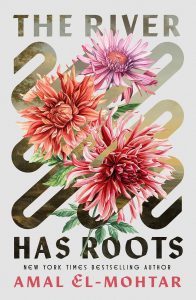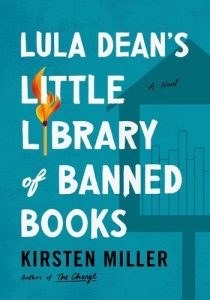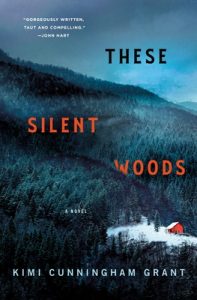
Shelley Parker-Chan’s She Who Became the Sun is a fierce, lyrical reimagining of the rise of the Ming dynasty’s founding emperor, told through the eyes of a nameless peasant girl who claims her dead brother’s fate. Marketed to fans of Mulan and admired by readers of epic historical fantasy, this Lambda Literary Award finalist and Hugo, Locus, and Otherwise nominee arrives with a lot of laurels. The real question is whether it delivers a reading experience that matches the hype. The answer, for the most part, is yes, with some unevenness that will matter more to readers who prize momentum over mood.
The hook that keeps you turning pages
We open in famine-stricken 1345 China, where fate is a currency as tangible as grain. A fortune teller predicts greatness for the Zhu family’s son and nothingness for their daughter. When bandits kill their father and despair claims the boy, the daughter steps across the boundary that was set for her and into his life. She takes the name Zhu Chongba, shaves her head, and enters a monastery determined to steal the greatness she was never meant to have. That single decision powers the book’s most compelling idea. Destiny is not a prophecy to be obeyed, it is a prize to be taken.
The monastery chapters are superb. Parker-Chan’s prose is sensuous without excess, the atmosphere dense with incense and discipline, and Zhu’s will to live reads like a hand around your wrist pulling you forward. If you love character driven origin stories that show grit, secrecy, and the small, tactical choices that shape a legend, Part One is a knockout.
A world of power, gender, and performance
As the story widens into rebellions and courts, the novel becomes a study of performance. Zhu’s monk, soldier, and commander identities are all masks, yet they reveal as much as they hide. Parker-Chan is at their best when exploring gender and desire as moving parts within the machinery of power. Zhu’s dynamic with Ma, the quietly steadfast woman who sees the person beneath the performance, gives the book its emotional center. On the other side of the battlefield, Ouyang, a eunuch general serving the Mongol power structure, mirrors Zhu’s hunger and pain, giving the narrative a morally rich counterweight. The result is a conversation about identity that feels integral to plot and not an add-on.
Where the momentum wobbles
Readers who want relentless propulsion may feel the middle acts slacken. Several reviewers have noted that battles can resolve quickly while stretches of transition linger, and the shift from a tight single perspective to a broader multi POV structure can create a sense of distance. I felt that too. The first quarter crackles, the final quarter bites, the middle sometimes hums instead of roars. This will not sink the novel for readers who enjoy meditative political maneuvering and thematic layering, but if your sweet spot is nonstop action, temper expectations.
Related to pacing, a few turns feel convenient. Zhu’s ascendance occasionally comes with less on-page proving than some readers might want. I read those moments as deliberate mythmaking, the narrative choosing legend texture over military procedural detail, though I still wished for one or two more drawn out set pieces to showcase Zhu’s battlefield brilliance.
Characters worth arguing about
Zhu is not meant to be charming. She is hungry, pragmatic, sometimes cold, always strategic. That will be magnetic for some and distancing for others. For me, the appeal lies in her self creation. Zhu does not ask permission to exist. She commits to the life she chooses, then pays every price that choice demands. Ma’s presence softens the edges without sanding them down, while Ouyang’s arc complicates the moral map. Together, they give the book an emotional range that stretches from tenderness to ruthlessness.
Secondary characters, from commanders to courtiers, bring texture even when they briefly cross the stage. The dialogue is pointed, often cutting, and the sense of place is vivid. You can feel the dust of the plains, the weight of armor, the ache of longing hidden behind duty.
Prose and theme, the novel’s secret weapons
Parker-Chan writes with clarity and heat. Sentences carry the pulse of desire, fear, and ambition, and the imagery consistently earns its keep. The central themes are timeless and sharply rendered. Fate versus choice. Identity as both shield and sword. The cost of greatness when the world refuses to imagine yours. When the book leans into those obsessions, it sings.
Verdict
She Who Became the Sun is a bold debut that reframes a well known historical rise as an intimate epic about survival, gender, and power. The middle third can feel diffuse, and some readers may wish for a steadier drumbeat of tactical detail, yet the highs are very high. If you crave character forward historical fantasy with big feelings, thorny ethics, and prose that glows, this is a worthy addition to your shelf. Readers who loved The Song of Achilles, political arcs in The Poppy War, or thematically rich retellings will find plenty to savor.
Read this if you like
- Historical fantasy that privileges character, identity, and politics
- Morally complex protagonists and rivalries that echo across a battlefield
- Slow burn power plays, intimate stakes, and lyrical writing
Skip or sample first if you prefer
- Constant action with tightly choreographed battles in every chapter
- A single POV structure with relentless momentum
I am glad I read it, and I will be curious to see how the Radiant Emperor saga resolves. For many readers, Zhu’s audacious reach for greatness will be the kind of story that lingers.
👉 Get your copy here: https://amzn.to/4o1dzgX


